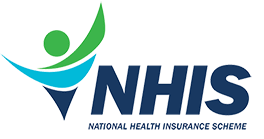
Ghana’s National Health Insurance Scheme (NHIS) stands as a cornerstone of the nation’s healthcare system, aiming to provide equitable access to quality care for all citizens. However, the scheme has long grappled with funding challenges, particularly concerning delayed payments to healthcare providers. The year 2025 marks a potentially pivotal moment, with a significant policy shift – the uncapping of the National Health Insurance Levy (NHIL) – offering new hope, while the persistent issue of provider arrears continues to cast a long shadow, recently culminating in service disruptions.
Furthermore, the broader health budget still faces constraints, with a large percentage allocated to worker compensation, potentially limiting investment in infrastructure and other areas. External factors, like potential reductions in donor support (e.g., USAID), could also impact overall health sector funding and outreach efforts.
A major highlight of the 2025 Ghana Budget was the government’s decision to uncap the NHIL. This move, welcomed by policy analysts and civil society organizations like the STAR Ghana Foundation as a “significant milestone,” ensures that all funds collected through the levy are fully allocated to the National Health Insurance Authority (NHIA). Projections indicate this could channel an additional GH₵9.93 billion (approximately US$600 million) into the NHIS coffers for the year.
The expectation is clear: this increased funding should fortify the scheme, improve access to essential health services, support initiatives like Free Primary Healthcare, and, crucially, enable more timely reimbursements to healthcare facilities. As Mfantseman MP Hon. Dr. Prince Arhin noted, the uncapping is seen by some as a “sure way to solve Ghana’s health care problems” by providing adequate resources.
Despite the optimism surrounding the uncapped levy, the chronic issue of delayed claims payments to service providers (hospitals, clinics, pharmacies) remains a critical challenge. These delays strain providers’ operational capacity, impacting cash flow, their ability to procure essential medicines and supplies, and their willingness to serve NHIS clients.
This financial pressure is often cited as a key driver behind the illegal co-payments (or extra charges) sometimes demanded from patients at the point of service, undermining the scheme’s core principle of reducing out-of-pocket expenses.
The situation reached a head in early April 2025 when the Private Health Facilities Association of Ghana (PHFAoG) announced a suspension of services to NHIS cardholders, citing frustrations over these persistent delays. This action underscored the severity of the arrears problem and its direct impact on patient access.
In response to the service suspension, the NHIA, under its new Chief Executive Dr. Victor Asare Bampoe, acknowledged the providers’ concerns. Crucially, the Authority announced in statements around April 5th-7th, 2025, that modalities for paying outstanding claims had been concluded and disbursement had commenced as of Friday, April 4th, 2025. The NHIA urged the PHFAoG to resume services for the benefit of patients while assuring that further payments were being processed.
Dr. Bampoe has explicitly linked the uncapped NHIL funding to the Authority’s ability to tackle this issue head-on. He emphasized that with “more money available,” the NHIA aims to make payments to providers “more quickly,” improve tariffs, and strengthen internal controls and fiscal management to prevent fraud and ensure efficiency.
Technology unification and enhancement are also part of the strategy. The ultimate goal, aligned with government initiatives like Mahama Care and Free Primary Healthcare, is to eliminate the need for illegal co-payments by ensuring the scheme functions reliably for providers.
While the commencement of arrears payments is a positive and necessary step, significant challenges remain. Historically, budget allocations and projections haven’t always translated into consistent, timely disbursement to the NHIA and subsequently to providers. Ensuring the substantial funds from the uncapped NHIL flow efficiently and promptly throughout 2025 will be paramount.
The currency fluctuations impacting pharmaceutical pricing, highlighted by the Ghana National Chamber of Pharmacy, add another layer of complexity, affecting provider costs and potentially hindering participation in the scheme if reimbursements don’t reflect market realities.
The uncapping of the NHIL in 2025 presents a genuine opportunity to stabilize and strengthen Ghana’s NHIS. It provides the financial muscle potentially needed to address the long-standing crisis of provider arrears. The recent commencement of payments following service disruptions is a critical move.
However, the ultimate success of this policy shift hinges not just on the availability of funds, but on consistent political will, transparent financial management, timely disbursements throughout the year, and a concrete plan to clear the entire backlog.
Restoring provider confidence and eliminating the burden of illegal co-payments on patients depend on sustained action, not just initial responses. All eyes will be on the NHIA in the coming months to see if the promise of 2025 translates into tangible, lasting improvements for Ghana’s healthcare system.
Source: Uncapping NHIL a sure way to solve Ghana’s health care problems – Mfansteman MP



